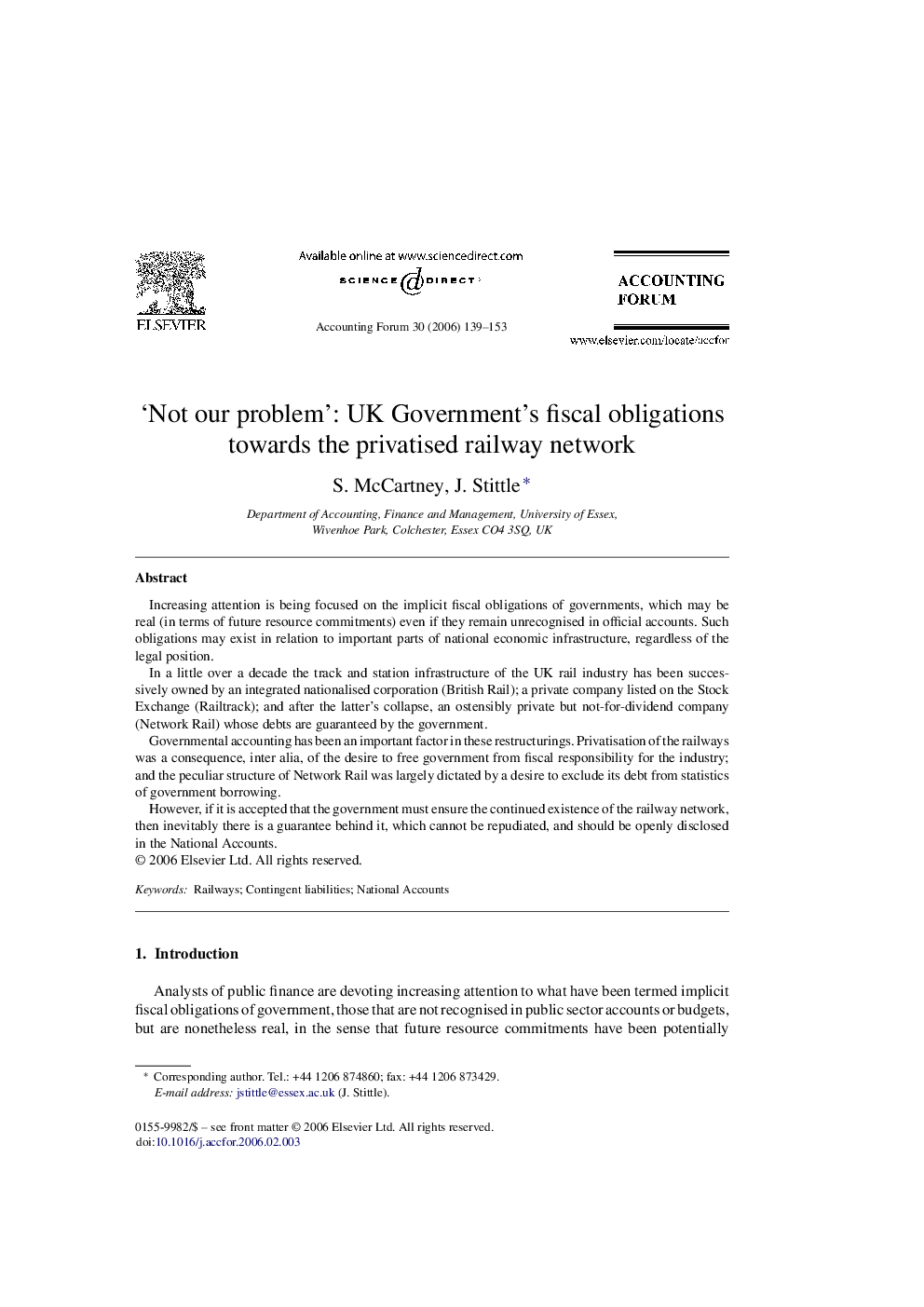| Article ID | Journal | Published Year | Pages | File Type |
|---|---|---|---|---|
| 1003920 | Accounting Forum | 2006 | 15 Pages |
Increasing attention is being focused on the implicit fiscal obligations of governments, which may be real (in terms of future resource commitments) even if they remain unrecognised in official accounts. Such obligations may exist in relation to important parts of national economic infrastructure, regardless of the legal position.In a little over a decade the track and station infrastructure of the UK rail industry has been successively owned by an integrated nationalised corporation (British Rail); a private company listed on the Stock Exchange (Railtrack); and after the latter's collapse, an ostensibly private but not-for-dividend company (Network Rail) whose debts are guaranteed by the government.Governmental accounting has been an important factor in these restructurings. Privatisation of the railways was a consequence, inter alia, of the desire to free government from fiscal responsibility for the industry; and the peculiar structure of Network Rail was largely dictated by a desire to exclude its debt from statistics of government borrowing.However, if it is accepted that the government must ensure the continued existence of the railway network, then inevitably there is a guarantee behind it, which cannot be repudiated, and should be openly disclosed in the National Accounts.
